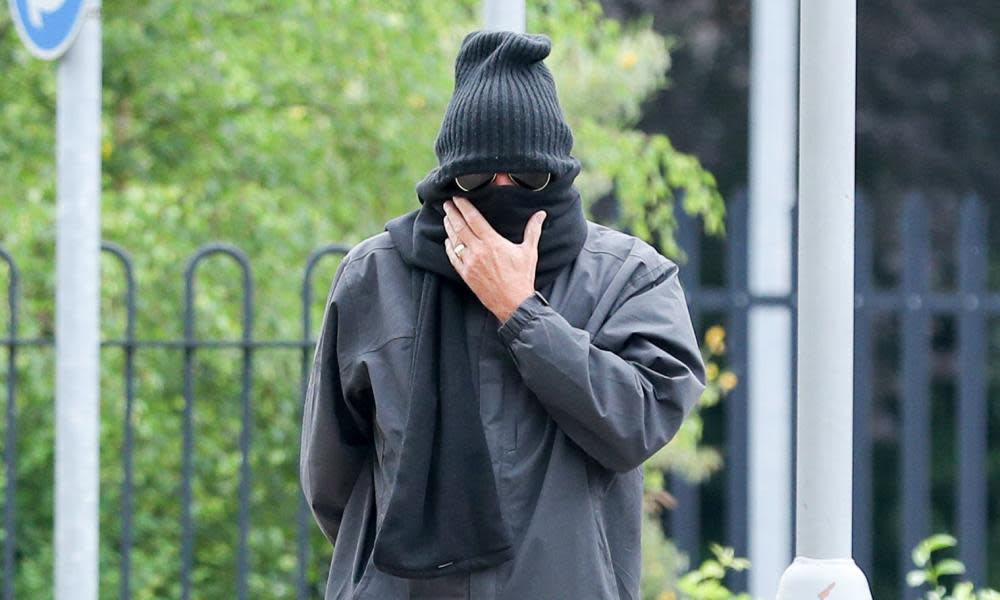Bob Higgins kept coaching boys for seven years after abuse claim, court told

A football coach on trial for a string of alleged sexual assaults on schoolboy players was able to continue working with children for seven years after a teenager made a formal abuse complaint about him, a jury has been told.
Bob Higgins left Southampton FC, where he helped launch the careers of a number of stars, after a young player told a senior figure at the club in 1989 that the coach had sexually abused him.
But Higgins went on to set up his own football academy, work with the Maltese FA and take up a post working with youngsters at a second professional club, Peterborough United. He allegedly abused boys there before leaving in 1996.
The jury also heard a claim on Thursday that a traumatised ex junior footballer Higgins had abused while he was at Southampton was jailed after holding a knife to a man’s throat because he resembled the coach.
Billy Seymour, a former professional footballer, used drugs and alcohol as a coping mechanism after being abused by Higgins, and attacked a taxi driver whose eyes and smell reminded him of his former coach, telling his parents: “He’s inside me,” Salisbury crown court heard.
Higgins, 65, denies 50 counts of indecent assault against 24 boys between 1971 and 1996.
Adam Feest QC, prosecuting, said Higgins was a “kingmaker” who helped boys to national and international careers, but claimed he was also a predatory paedophile who used his “supreme power” to carry out a campaign of sexual abuse against his “puppies”.
Higgins allegedly abused boys on training camps, at the home he shared with his wife, in his car and on ferries heading to cup competitions in Sweden.
Feest told the jury how a young footballer, Dean Radford, came forward in 1989 to make a formal complaint to a senior Southampton FC figure, Dave Merrington, that he had been abused by Higgins.
Higgins was put on trial over the Radford allegations in the early 1990s but was found not guilty. Allegations made by “a few” other complainants were dropped.
Feest said by 1990 Higgins left Southampton but he returned to coaching at a professional level with Peterborough in 1994 as the under-16 youth manager.
“Once again he had access to young boys in awe of him and he used this opportunity for his own gratification,” said Feest.
Higgins told complainant V that he would not make it as a footballer if he did not come to his house in Southampton at weekends for extra training. V barely returned home for the next six months.
Higgins began to indecently assault V and once told him that he thought he would do anything to get a professional contract – even perform oral sex on him, though this did not happen, the court heard.
Another young Peterborough player, W, claimed he was also sexually assaulted by Higgins. Though he was a youth international he was allegedly “marginalised” after telling Higgins he was doing wrong. H felt “alienation, physical and mental torture” before being released by Higgins.
Feest told the jury that Billy Seymour stood out as being most affected by the alleged abuse. Seymour has waived his right to anonymity.
Higgins groomed Seymour, the jury was told, and the boy came to idolise him. The defendant began driving him to training and, with Whitney Houston love songs playing on the stereo, would touch Seymour intimately and get him to rest his head in his lap, it is claimed. After one incident in which Higgins allegedly summoned Seymour into his bed, the boy felt “like his head was going to explode”.
By the early 1990s, Seymour was misusing drugs and alcohol as a coping mechanism, the jury heard. In 2010 Seymour called his parents and told them he was “lost” and going to prison. He said he had held a plasterer’s knife to the throat of a taxi driver because the man reminded him of his old coach.
The trial continues.

 Yahoo News
Yahoo News 
